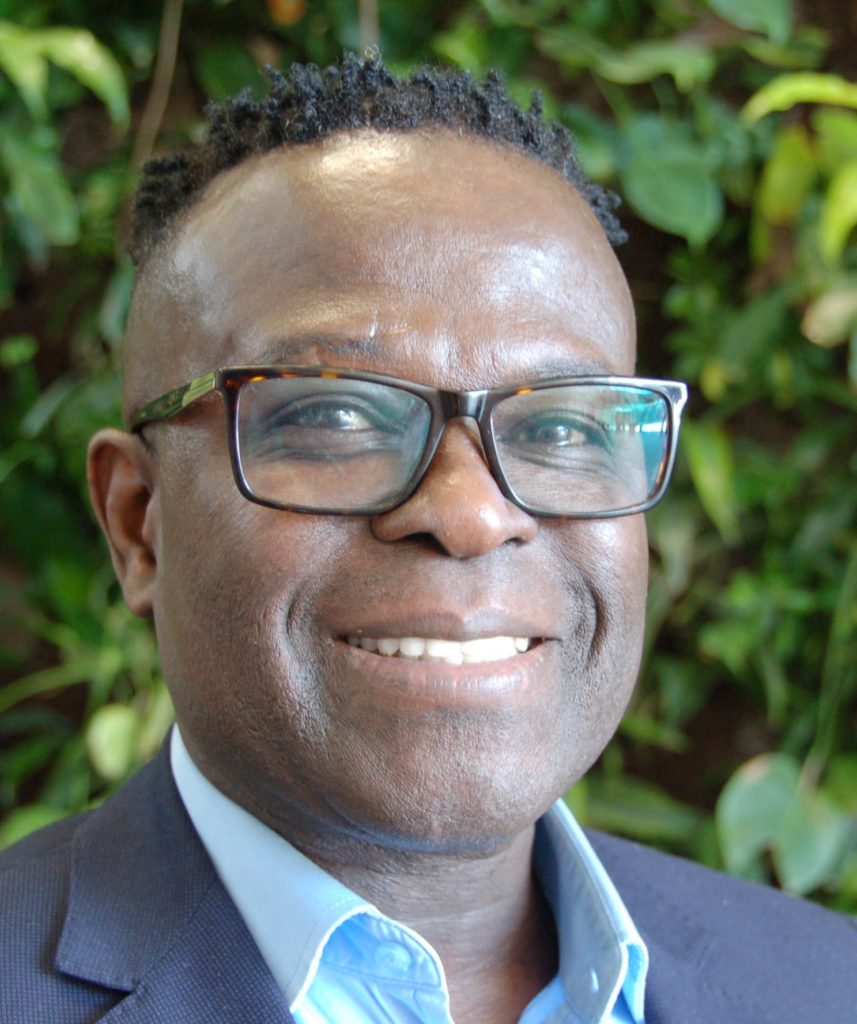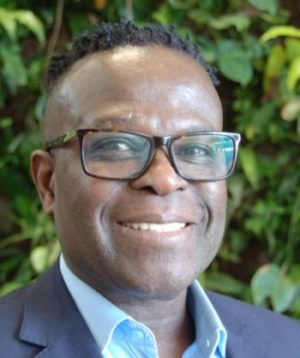
“Grieving over loss of our freedoms during a pandemic: civil liberties in the time of COVID19.”
by Andy Kusi-Appiah, QE Scholar, 2019/2020
I – Solitude in motion:
On Sunday March 29, 2020, I ventured out of my self-imposed-solitary confinement, and I walked/jogged for eighteen kilometres before returning home, drenched in my sweat and completely exhausted! My walk/jog took me through the empty streets of the City of Ottawa. Alas, COVID19 is now a thing – it is real and it is frightening! I found the City completely deserted! I mean on a Saturday afternoon the traffic in this city is always insane — cars and cars and cars galore — and contributing to the world’s carbon dioxide emissions. But today it just seemed to me that settler life had been sucked out of the nation’s capital, and that all of us settler colonialists have finally decided to ‘give’ this unceded land back its rightful owners.
Not! — the city is deserted because of our fear of a tiny virus called corona, one of humankind’s non-human cousins unleashed as a result of humanity’s encroachment of their habitats. When any group of Homo Sapiens arrogate to themselves the repository of all knowledge and trample upon everybody/everything else, a pandemic happens — and when humans ignore tried and tested advice on how to deal with the danger posed by a virus, it escalates and it puts everyone else in danger. The novel coronavirus is one of humankind’s non-human cousins whose habitat has been violently invaded by human action, resulting in contact that could be deadly. Vandana Siva (2020) tells us that:
“As we destroy the habitat & homes of wild species, we violate the integrity of species and create the conditions for diseases to move from non-human animals to human animals. As we manipulate animals in factory farms & genetically manipulate plants, we create conditions for non-communicable chronic diseases as well.” (Siva, 2020).
II – Action and reaction are opposite and equal
This particular health emergency is forcing us to re- think our relationship to the environment. Although we have been warned consistently about the possibility of this happening (as a result of our relationship with the environment), we seem to be caught unprepared anytime we are confronted with something like it. As succinctly put by Albert Camus, this virus too has taken humankind by surprise. In his book ‘The ‘Plague’, Camus writes:
“Everybody knows that pestilences have a way of recurring in the world, yet somehow we find it hard to believe in ones that crash down on our heads from a blue sky. There have been as many plagues as wars in history, yet always plagues and wars take people equally by surprise.” (Camus, 1947).
At a solitary prayer service to an empty St. Peter’s Square last week, Pope Francis said it even better: “It (corona virus) has taken over our lives filling everything with a deafening silence.” (Pope Francis, 2020). Indeed, humankind is grieving — we are mostly grieving the loss of a way of life. Our current situation is not normal; the current situation is driving us nuts because we have been ‘inconvenienced’ by a tiny virus — how dare it! The virus has compromised our standard of living as we knew it a few odd weeks ago, and that irks us to no end: we cannot even go to our places of work; we cannot freely go out a-visiting family and friends; we cannot go out to play sports with our friends; we cannot go out to the restaurant (s) for a meal (s) with our family and friends. This is frustrating, and it is the source of our grieving!
III – How do we get out of this mess?
We can get out of this in one piece collectively, only if we do what is expected of us. There are 3 ways by which humankind could get out of this pandemic. They are by containment, by quarantine/testing and by herd immunity. We have already missed the opportunity to contain the virus when we failed to act quickly and decisively when news about the virus became apparent. Containment is effective at the very early stages of a pandemic, but the proverbial train has left the station – – we cannot go back to the beginning of the outbreak. My dear friend Dr. Arthur Kennedy (of ‘DOCTORS CARE’ [USA]) reminded me last week of a series of missteps that have rendered containment untenable. Humankind is now staring at the only feasible proposition between the other two options (i.e., quarantine/testing). We need to intensify our quarantine and testing efforts. The idea is that by being quarantined, the virus that needs a living cell to perpetuate itself will not have new cells once it goes through the healing cycle within the infected person. Testing is important to find out where the virus is moving in our population. Quarantine and testing must be enforced everywhere for it to be effective. In addition, let us wear facemasks because scientific studies have shown that face masks fundamentally prevent transmission from one person to another – facemasks protect the wearer and the nearest person as well Dr. Vojtech Petracek, a Particle Physicist of the Czech Technical University, is on record as saying that the low transmission levels the Czech Republic is witnessing today is as a result of an emphasis on wearing facemasks in Czech society.
Anything short of all of the above will put us in herd immunity zone. The unthinkable concept of herd immunity is a deadly and inhumane proposition. Herd immunity posits that in situations like this, society must literally allow the virus to spread through the population and infect whomever so that at the end of the day, those left standing would be immune to the pathogen and this immunity would protect the rest of the population. This is a kind of “survival of the fit” mentality, but it is a dangerous proposition akin to calling for murder. In this scenario, vulnerable people (i.e., people with pre-existing conditions) will die in droves, and I hope we never get to this stage in our fight against the coronavirus.
IV – Enter the age-old wisdom of hand washing
And so let us seriously engage in quarantine and testing, and while we are at it, let us not forget the 300-year advice being echoed over & over everywhere, i.e., wash your hands with warm water and soap! This is an admonition every culture on planet Earth knows and practices. I was in Mzuzu (Malawi) between June and September of 2019, and I was pleased to see that handwashing IS a ritual in any and every household I visited. In Mzuzu, no meal is shared without a seriously public ceremony of handwashing with soap and warm water. I can say the same about every local community anywhere on planet Earth – I am convinced that local people know the health implications of thorough handwashing with soap and warm water., and they have been practicing this for millennia.
V – Performing anamnesis to move forward
And so once and for all, Homo Sapiens need to come to terms with the fact that this industrial system of an economy and our way of thinking is anti-nature, unhealthy and unsustainable. In other words, it is hubristic for any group of people from any part of planet Earth (and/or their surrogates in their former colonies) to think that they know better than everybody else, and that it is their Olodumare-given-right to dictate how anything is done regardless of where their so-called solutions are being implemented. It is now time to accept that local people also have knowledge which applies sustainably to their local environments. We cannot continue to risk the biogenetic survival of this planet just because of some ill-advised bottom line! According to Siva (2020), we humans are dependent on our diversity and our beautiful interconnectedness. All knowledge is important and local knowledge is especially important for the local places where they are generated. In addition, our obsession with the economy must give way to a balance among the economy, equity and ecology. In this grievous moment it is mind-boggling to read that there is a place on planet Earth where people are deadlocked in a debate about the merits of showering billions of dollars on corporations at the expense of marginalized and vulnerable people in their midst. Is there anything more important than dealing effectively with this novel virus? Shouldn’t this be humankind’s top priority? We need to reflect on Dr. Simon Dalby’s plea about how we may deal with such issues moving forward. Dalby asks:
“Is it too much to hope that these two lessons, of failure to heed technical warnings, and failure to understand exponential growth and its implications for societies facing future threats, will be learned in the next while? (Dalby, 2020).
Dalby admonishes us to take a cue from the lessons we are learning from COVID19 or suffer the consequences:
“…..but if the lessons aren’t learned soon, then returning to business as usual based on fossil fuels after the pandemic subsides, will lead us back onto the upward track of climate caused disasters, for which the cures, if we have time left to implement them, are likely to be extremely painful….” (Dalby, 2020).
We need to ‘create’ another world in which human beings value balance.
Onward!
About the writer
Andy Kusi-Appiah is an adjunct professor at Carleton University. His interests are in the impact of social and environmental changes on the health and well-being of vulnerable groups (e.g., 2nd generation Canadians of African descent).

